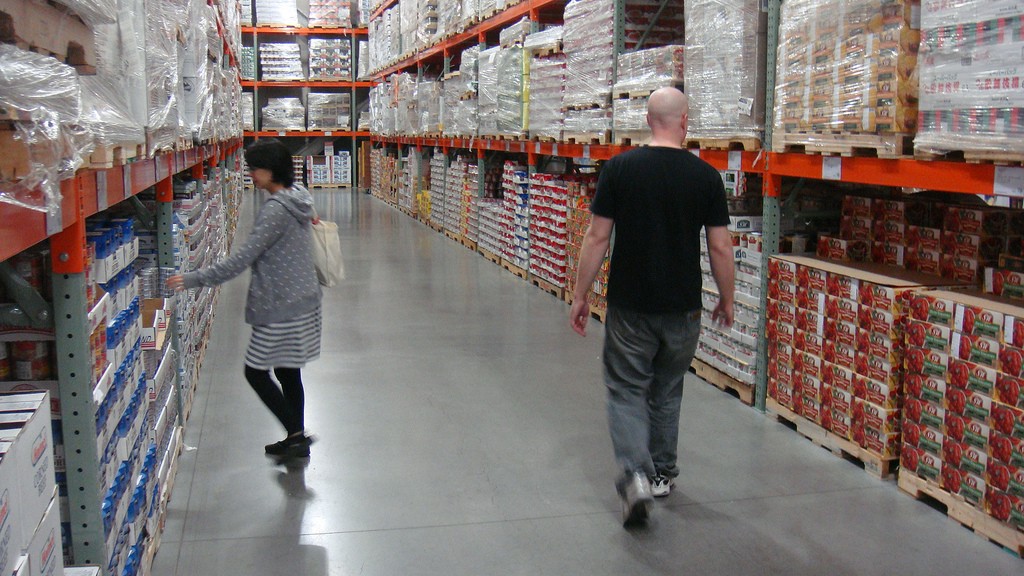When Buying in Bulk Results in Waste

Americans are very good at throwing away perfectly good food. Last month, I wrote about a nonprofit grocery store that former Trader Joe’s president Doug Rauch opened to help cut down on food waste by selling perfectly good food that might be thrown out by grocery stores (because they’re misshapen or nearing its sell-by date) at rock-bottom prices in a low-to-middle income neighborhood.
Slate meteorologist Eric Holthaus points to evidence that we, as individuals, also contribute to the “40 percent of America’s food supply [that] gets thrown away every day, with dairy, breads, meats, fruits, and vegetables leading the way.” He argues that the easiest way to help cut down on waste is to avoid buying so many perishable items in bulk by buying fewer items and shopping more frequently. Here’s Victoria Ligon, who led a food waste study:
“When you’re talking about food, feeling really plays a big role. Things like predicting how hungry you are, your appetite, and what you’re in the mood for — in the future — turn out to be very challenging,” Ligon says. “If you’re shopping more frequently, you can purchase food that is meant to be eaten in a shorter time frame.”
But there’s a catch. Ligon’s research also revealed that people regularly buy groceries from three to seven different stores. With so many choices, there’s an incentive to overbuy at each stop — especially if you don’t plan on being back for a few days. We’ve all done this: You go into Trader Joe’s planning to buy some nectarines, and you come out with an armful of specialty potato chips and four frozen pizzas.
It makes a lot of sense, but this solution assumes you have enough free time in your schedule to make multiple stops at the grocery store every week. Time is certainly something I don’t have much to spare.
It does feel like you’re throwing away money when, say, you toss a bag of wilted spinach you meant to eat in the garbage. I’m as guilty as anyone for throwing away food that’s gone bad, but I’ve learned to be more thoughtful about the way I shop. For example, when I know I’ll be traveling for an extended period of time for work, I’ll shop for frozen vegetables and go light on fresh produce. I buy the pricier carton of organic milk because it lasts longer. I’ll only buy meat or fish if I know I’ll be cooking it that same day.
I’ll disagree with Holthaus on one point: He argues that bulk stores like Costco “operate on the myth that buying in bulk helps you save money.” It can if you do it right; my parents relied on Costco for everything from big boxes of laundry detergent and toilet paper to cereal and multivitamins. If it has a good shelf life, buying in bulk can make a big difference on your grocery bill.
Photo: David McKelvey
Support The Billfold
The Billfold continues to exist thanks to support from our readers. Help us continue to do our work by making a monthly pledge on Patreon or a one-time-only contribution through PayPal.
Comments